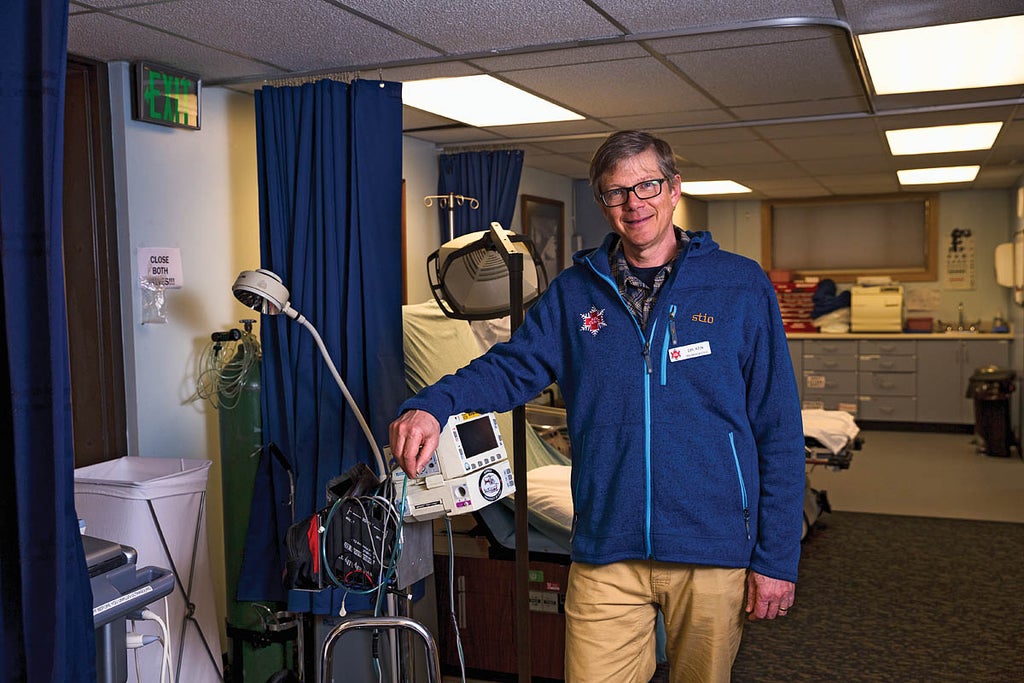Interesting topic. I know a number of my colleagues here in Canada (mainly ER or trauma MDs) volunteer with ski patrol in exchange for a free pass. Usually there's an MD on mountain (at bigger hills) on the weekends, not necessarily on the weekdays. The nearest small hospital is 30-60 minutes away from the ski hills, and the nearest trauma centre is another 1.5 hours away by road. The volunteer MDs wear patrol uniforms and have a "Dr. J. Doe" nametag, so clearly identified as a doctor. From what I understand, you do not bill anything as you're volunteering and being "compensated" with employee perks already.
Canada is obviously different than the US when it comes to liability, so YMMV. CMPA, the main provider of MD liability insurance in Canada, has a short article about providing medical care to athletes that is tangentionally related
here Their article states "Physicians may be asked to provide medical coverage at sporting events as a medical director, as part of the medical staff,
or as a volunteer. In most cases, the standard of care, responsibilities, and potential liabilities are similar as when doctors provide care to any athlete,
even when the work is voluntary. As well, doctors working at events outside their provinces should ensure their licensure is appropriate for that location." I would interpret that to mean that as long as you're working within your scope of practice and to the accepted standard of care for that practice, your personal liability insurance would likely cover you. I would say that any medical professional volunteering should ensure valid personal liability coverage and
never ever ever rely on the mountain or resort's insurance.
Mountain medicine is absolutely nothing to do with my specialty, so a non-issue for me, but I definitely might be a bystander - and since I always have current BLS and ACLS, I might have to use them. Here, good samaritan laws cover medical professionals, plus CMPA will usually cover MDs who provide emergency medical care in an isolated setting (for instance, on an airplane) - including if you have retired and no longer have CMPA coverage. Quebec is the only province that has legislation that actually imposes a legal duty for physicians to provide aid in
life threatening emergencies, everywhere else it is up to your own judgement/ethics. I think the key is that you're really providing first aid, sometimes more advanced if there's a good medical kit or AED available, and nothing that you do should delay or interfere with EMS. Using the airline example, it's interesting that, although
airlines in Canada have been sued for how the airline has prepared for or dealt with a medical emergency, no
physician who has provided care on an airplane has been sued.
From the small amount of detail in the article, it sounds like he runs a general practice clinic in a location that serves a small local population and gives him easy access to skiing. It really doesn't say anything about a formal relationship with the resort beyond going out with ski patrol, which might be on a strictly volunteer basis like MDs do here.

 www.skimag.com
www.skimag.com

 www.skimag.com
www.skimag.com

 That would probably be required for patrols that dispense controlled substances.
That would probably be required for patrols that dispense controlled substances.